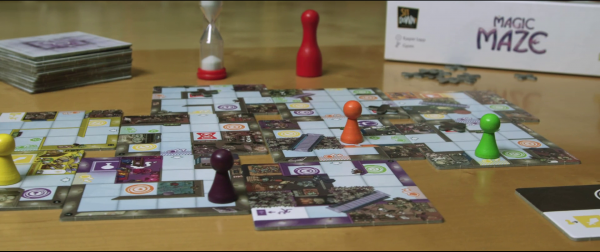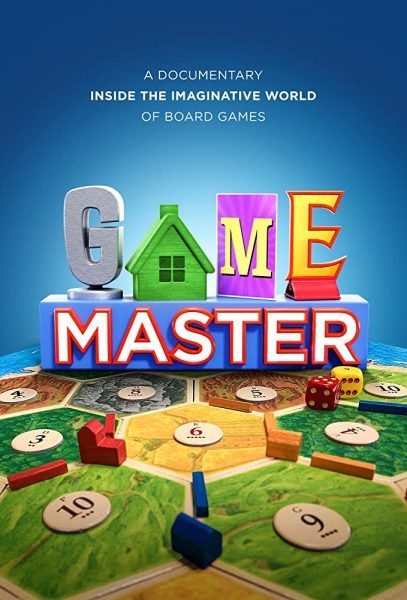Arguably the nerdiest thing about me (and there’s a lot of competition) is that I wish board games were a bigger part of my life. That’s right: not that they are, but that I haven’t made them that way because this is such an insurmountable goal for some reason. I was actually planning to change that this year, but then, you know, pandemic. But I love the idea of tabletop games so much that I leapt at the chance to review Charles Mruz’ new documentary Gamemaster, which hit VOD this week. Gamemaster is an essential movie for anyone who has dreamt of being a tabletop game designer. It digs into how game design functions, the economics of the business, the convention scene, and more. But its impressive overarching theme is that games aren’t just fun diversions but rather an artistic expression of their creator and subject to all the forces and counterforces that typically accompany that expression.
Gamemaster follows four aspiring game designers as they try to find success with their projects. Jason Serrato works to kickstart his game Thug Life, which has run into problems because of its subject matter (it’s like a Grand Theft Auto board game, as far as I can tell) and its price point for potential backers. Charlie Bink has created Trekking the National Parks and is in a family business with his parents, but that presents its own problems. Scott Rogers recently partnered with a publisher on his new game Rayguns and Rocketships. And Nashra Balagamwala is drawing on her own life with her game Arranged!, which is about running away from arranged marriages. Through these four stories and other interviews, we see the successes and pitfalls of a rapidly growing industry and the creative forces at work to bring a board game from inception to market.
One of the best things I can say about this movie is that I would happily play all four of these games. Mruz and his subjects do a terrific job of selling the appeal and stories of their games even if there’s not enough time to get into the weeds of how the games are played (a not atypical situation for adult board games and their complicated rules; they’re not making Chutes and Ladders here). What makes these games appealing isn’t necessarily whether or not they’re fun (again, there’s no time to get into the details of play), but that we get wrapped up in the passion of their creators. When Serrato talks about how games kept him off the streets growing up or Balagamwala expresses that Arranged! is born out of her real experiences, that makes the games feel more like a fun distraction. You’re seeing a different kind of artistic expression even though we wouldn’t instantly categorize board games as an “art form.”
And yet looking at the process these creators go through, you can see all the parallels of other artistic pursuits. Sure, there are elements like play mechanics and playtesting, but a movie has story structures and test screenings. Furthermore, Gamemaster stresses that designing board games is not the industry for people that want to become wealthy, overnight success stories. Even Elan Lee, who had a massive Kickstarter hit with Exploding Kittens explains that raking in $9 million in backing was just enough to allow them to start a business rather than retiring on an exotic beach. But that’s the same place artists come from: they do it because they are creatively pushed to do so, and then figure out a way to make some kind of a living off that artwork. If you’re looking at it from the cold calculus of how to make money rather than enjoying the design process, then this isn’t the industry for you.
Where Gamemaster falters as a documentary is that it’s all a bit shapeless. By the time we’re on a segment about the value of prestigious awards, it feels like Mruz has lost his most captivating threads. While it’s nice to know which awards are important to game designers and how it results in better sales, that lacks the stakes of our central characters and their games. It’s much better when we’re following Rogers at a convention and meeting with publishers because it shows us an important part of the business while keeping us with one of the documentary’s main figures. In a documentary that jumps between a lot of topics, you need those main figures to keep us hooked because we care about their individual stories.
Gamemaster didn’t inspire me to want to pursue game design, but it gave me a newfound respect for people that create such joyful experiences. I now have several more games that I’ll be looking to play with friends when playing games with friends becomes a possibility again, and I’ll also look at those games differently. But I’ll also think differently about games overall. It’s difficult when you have something like Chess, which evolved over centuries as opposed to what game design is now, and obviously not every game is some personal piece of art just as every film isn’t some auteur-driven vision. But we should appreciate those that are, and Gamemaster does a great job of fostering that appreciation.
Rating: B




